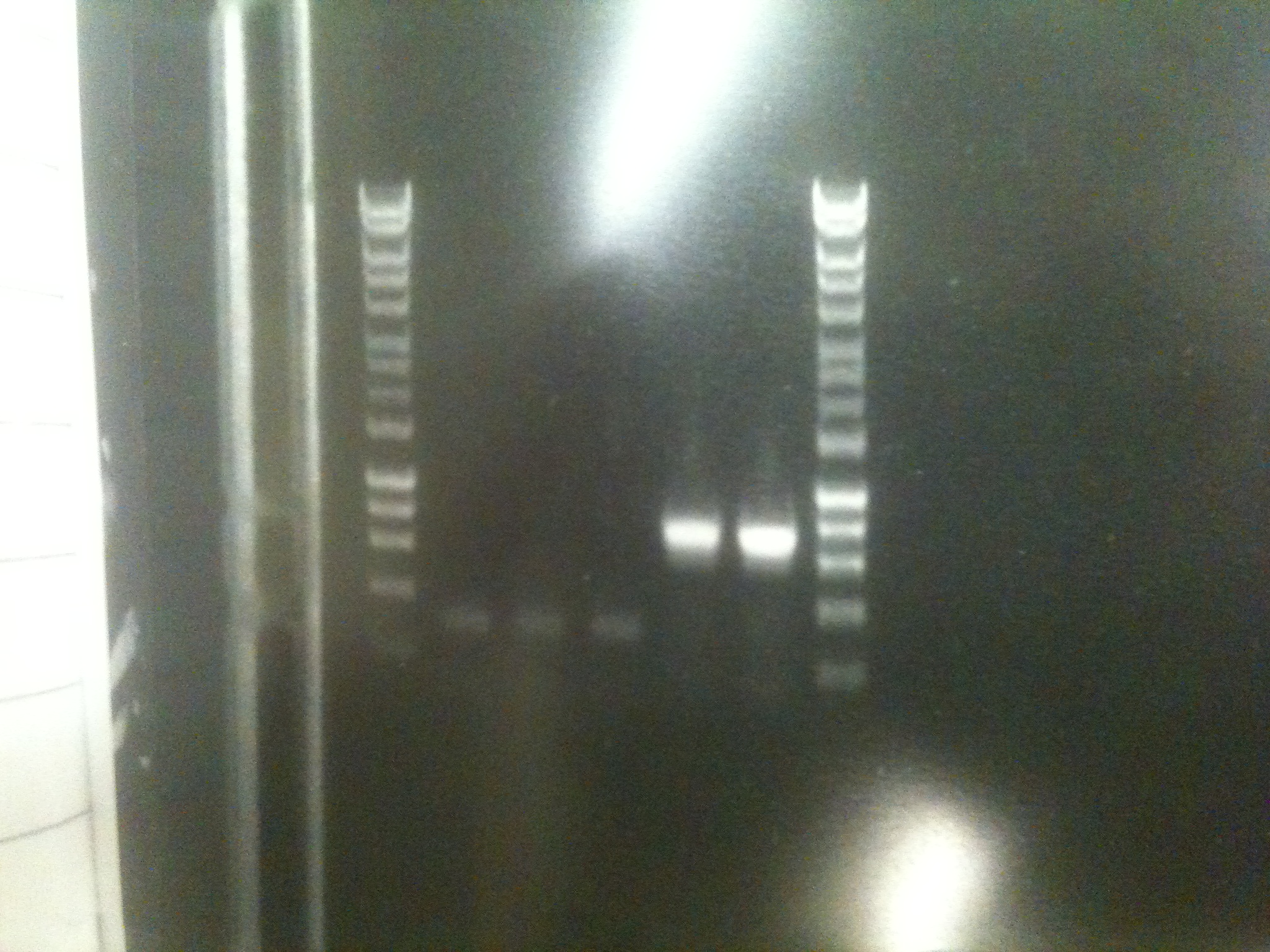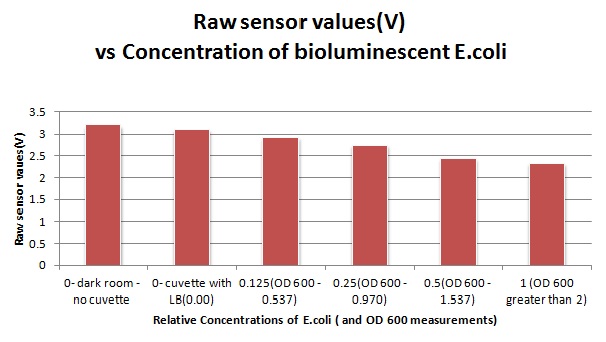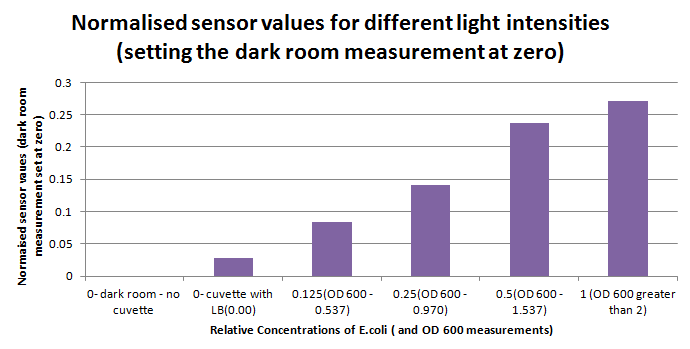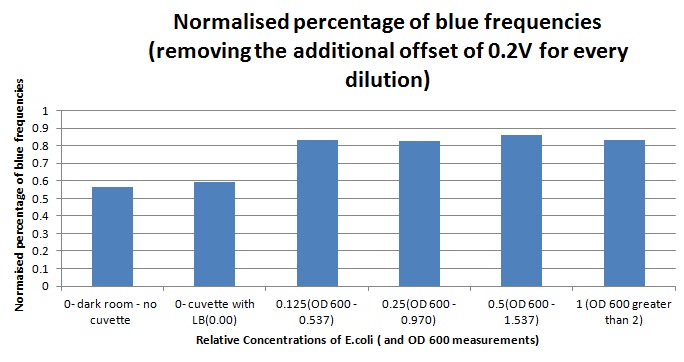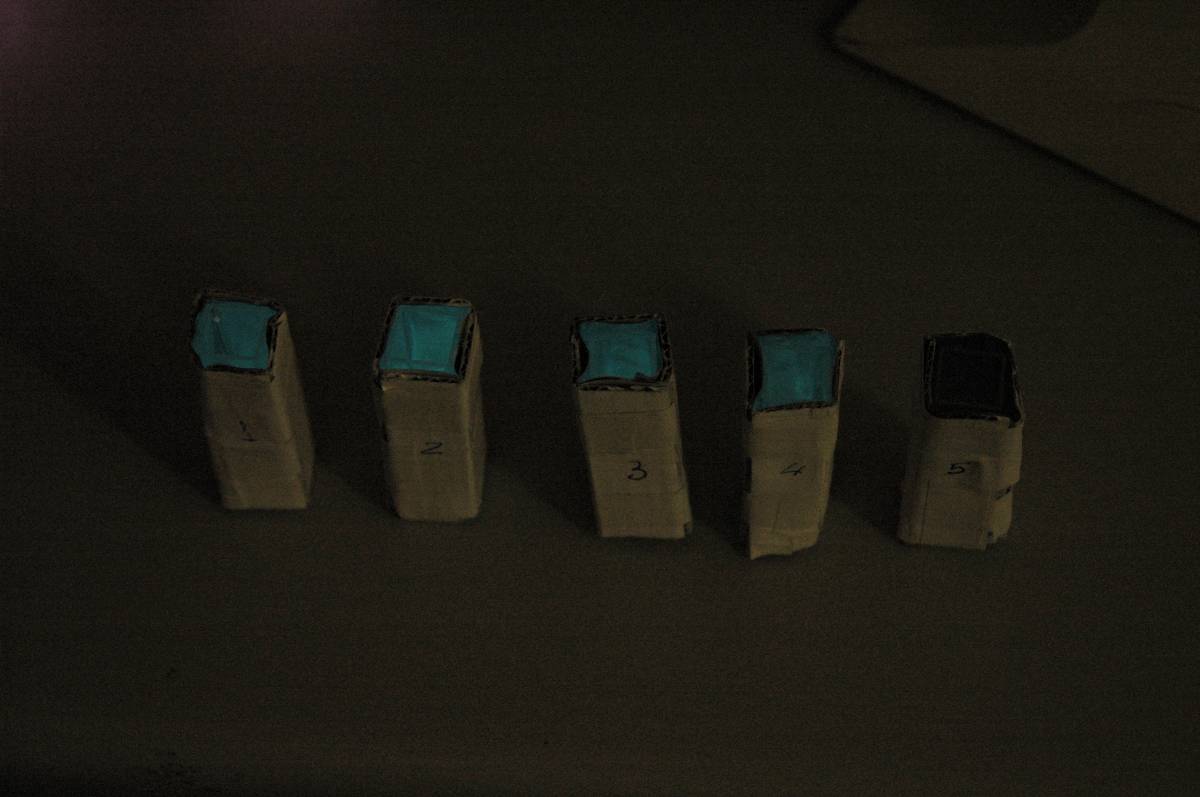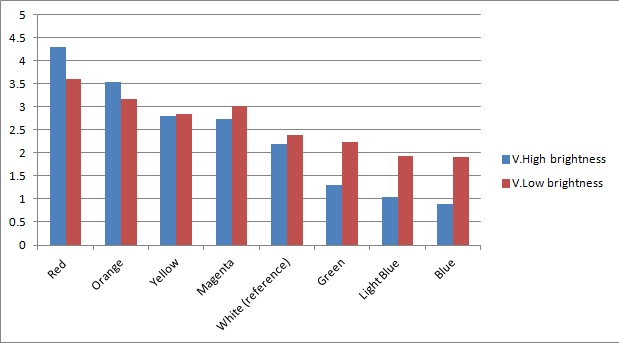Team:Cambridge/Lab book/Week 14
From 2012.igem.org
(→Monday (24/09/12)) |
(→Tuesday (25/09/12)) |
||
| Line 39: | Line 39: | ||
===Tuesday (25/09/12)=== | ===Tuesday (25/09/12)=== | ||
| + | |||
| + | '''Ratiometrica - Lux''' | ||
| + | |||
| + | a few colonies obtained on each plates. cultures made at the same time as preparing a colony PCR. Unfortunately, similar results were obtained to yesterday, showing no insert. | ||
| + | |||
| + | '''Instrumentation''' | ||
The sensitivity of the sensor concerning different frequencies (colours) of light was tested as well. As can be seen below, measurements taken from orange and blue light yield values respectively above and below those from white light (our reference point). The data was taken using a constant intensity of light for each case (V.High and V.Low brightness). This was done with the aid of an Android phone and a specialised software application, called Color Flashlight, downloaded from the official Market. | The sensitivity of the sensor concerning different frequencies (colours) of light was tested as well. As can be seen below, measurements taken from orange and blue light yield values respectively above and below those from white light (our reference point). The data was taken using a constant intensity of light for each case (V.High and V.Low brightness). This was done with the aid of an Android phone and a specialised software application, called Color Flashlight, downloaded from the official Market. | ||
Revision as of 03:06, 27 September 2012
| Week: | 3 | 4 | 5 | 6 | 7 | 8 | 9 | 10 | 11 | 12 | 13 | 14 |
|---|
Contents |
Monday (24/09/12)
Ratiometrica - Lux
Colonies grew. However colony PCR using the sequencing primers revealed them to be transformed with recircularised backbone.The digestions and ligations were reattempted.
Instrumentation
The sensitivity of the sensor concerning light intensities was tested using a dilution series of luciferase-producing bacteria. 20ml Cultures were grown overnight from single colonies. The cultures were induced with 40ul of 1.5M arabinose (for a final concentration of 3mM). Cultures were left for 2 1/2 hours for full induction. Subsequently, a culture was pelleted and resuspended in 4ml LB. Doubling dilutions, of volume 2ml, were made from this concentrate, down to 1/8th concentration. 1ml of each 2ml dilution was analysed in each cuvette, which was placed in the cuvette holder we made ourselves.
Tuesday (25/09/12)
Ratiometrica - Lux
a few colonies obtained on each plates. cultures made at the same time as preparing a colony PCR. Unfortunately, similar results were obtained to yesterday, showing no insert.
Instrumentation
The sensitivity of the sensor concerning different frequencies (colours) of light was tested as well. As can be seen below, measurements taken from orange and blue light yield values respectively above and below those from white light (our reference point). The data was taken using a constant intensity of light for each case (V.High and V.Low brightness). This was done with the aid of an Android phone and a specialised software application, called Color Flashlight, downloaded from the official Market.
Wednesday (26/09/12)
Thursday (27/09/12)
Friday (28/09/12)
 "
"

